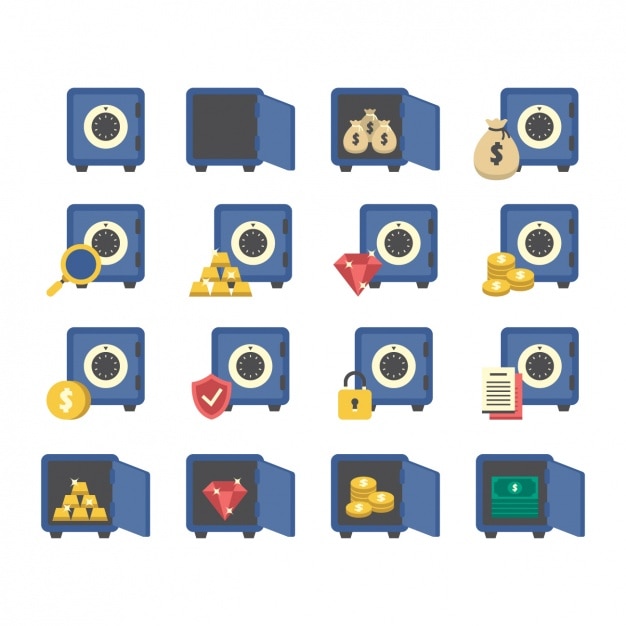Exploring the Most Affordable Options for Safety Deposit Boxes: A Comparative Study of Banks

Have you ever wondered if your documents and valuables are safe? Maybe you saw a spy movie where someone was rummaging through fake IDs and different currencies in a safety deposit box and got curious about which bank offers the cheapest safety deposit box.
### Safety Deposit Box Basics
A safety deposit box is a personal locked container kept inside the vault of a federally insured bank or credit union. These boxes use a dual key system: the bank or credit union holds one key to unlock the vault, and the renter holds the key to their specific box. Additionally, an authorized signature is required. When you open an account, anyone who is allowed to access the box must provide their signature, which the bank keeps on file.
Safety deposit boxes come in various sizes, typically ranging from 3″ x 5″ to 10″ x 10″. The larger the box, the higher the rental cost. The location of the bank also influences the rental fee.
### How to Rent a Safety Deposit Box
First, find a nearby location that has a safety deposit box available for the duration you need. Ensure the bank’s hours fit your schedule so you can access your items when necessary. Then, fill out a rental agreement, which will detail what can be stored in the box, the fees, and any available insurance. After signing the agreement and verifying your identity, you’ll receive the keys to your safety deposit box.
### Which Bank Has the Cheapest Safety Deposit Box?
Currently, the cheapest safety deposit boxes are available at Erie Federal Credit Union, Ent Credit Union, Local Government Federal Credit Union, and First Bank & Trust. Here are some examples of costs at various banks:
– ANB Bank: $30 per year for a 3″ x 5.5″ x 24″ box
– Vibe Credit Union: $30 per year for a 5″ x 5″ box
– Columbia Bank: $25 per year for a 2″ x 5″ box
– Ent Credit Union: $15 per year for a 3″ x 5″ x 24″ box
– First Service Credit Union: $25 per year for a 3″ x 5″ box
– First Bank & Trust: $20 per year for a 3″ x 5″ box
– Erie Federal Credit Union: $15 per year for a 3″ x 5″ box
– Local Government Federal Credit Union: $18 per year for a 3″ x 5″ box
– People First Federal Credit Union: $30 per year for a 2″ x 5″ box
– Truist: $45 per year for a 3″ x 5″ box
– Lake City Bank: $60 per year for a 3″ x 10″ box
### How Much Does a Safety Deposit Box Cost at Bank of America?
Some banks, like Chase and Bank of America, are discontinuing their safety deposit box services. They cite high service costs and space limitations in smaller branches as reasons for this decision.
### What Do People Store in Safety Deposit Boxes?
People store items they consider valuable in safety deposit boxes. This can include items with financial or sentimental value, such as copies of contracts, marriage or birth certificates, or family heirlooms.
### Things Not to Store in a Safety Deposit Box
Each bank or credit union has its own rules about accessing safety deposit boxes, so it’s not advisable to store items you might need quickly, like a passport or COVID-19 vaccine card. Most places also prohibit storing weapons, illegal items, or cash. Even if cash were allowed, there are better places to store it, like investments.
Although a will is a legal document, it should not be kept in a safety deposit box unless the beneficiaries are authorized to access it. Otherwise, loved ones might need a court order to access the box after your death.
### Are Bank Safety Deposit Boxes Worth It?
The value of a safety deposit box depends on what you store in it and your personal situation. They can be very useful for people who have others in their home when they aren’t present, such as in shared housing, or for those who frequently move within the same area.
### Pros of Using Safety Deposit Boxes
– Only the renter and authorized individuals can access the items inside.
– Items in a safety deposit box cannot be misplaced.
– Banks and credit unions offer multiple layers of security that homes may not have, making it harder for thieves to steal from a bank than from a home.
– Safety deposit boxes are cheaper than home safes in the short term.